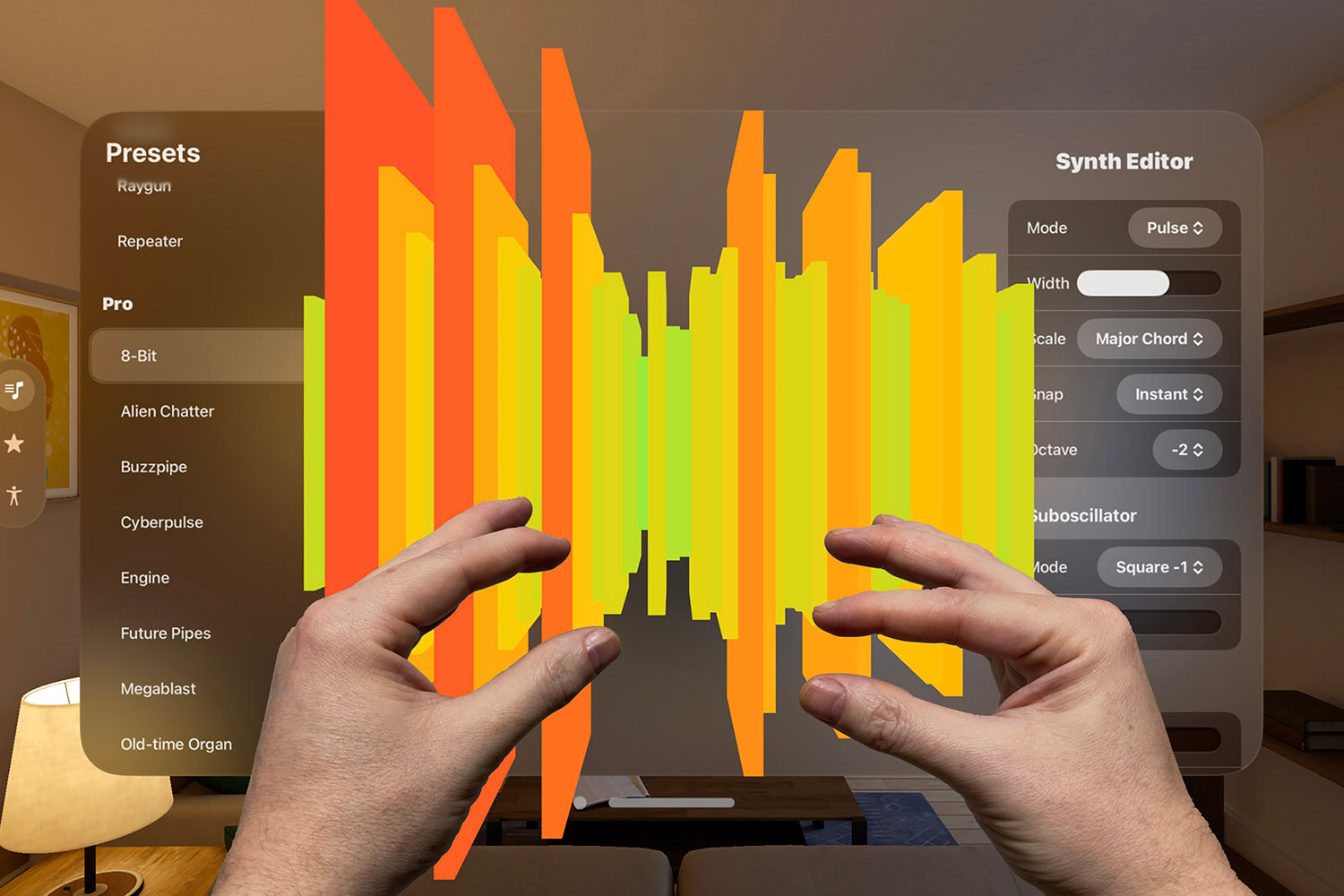If you're moving from Objective-C to Swift, or perhaps from Swift to Objective-C, it can be useful to have a quick start guide showing equivalent code samples in both languages. Well, that's exactly what you'll find below: a Rosetta stone of Apple development, demonstrating variables, collections, functions, classes, and more.
In all instances, Objective-C code is shown on the left and the equivalent Swift code on the right. Where necessary I have added small clarification notes to give you more understanding.
If you can already program in Swift and want to get up to speed with Objective-C as quickly as possible, I have just the book for you: Objective-C for Swift Developers.
| Create a variable |
NSInteger score = 556;
NSString *name = @"Taylor";
BOOL loggedIn = NO;
|
var score = 556
var name = "Taylor"
var loggedIn = false
|
| Create a constant |
const NSInteger score = 556;
NSString * const name = @"Taylor";
const BOOL firstRun = YES;
Constants are used infrequently in Objective-C.
|
let score = 556
let name = "Taylor"
let firstRun = true
Constants are extremely common in Swift.
|
| Create a variable array |
NSMutableArray *items = [NSMutableArray new];
NSMutableArray<NSString *> *results = [NSMutableArray new];
Generics in Objective-C are a contentious issue; you will see both styles.
|
var items = [String]()
var results = Array<String>()
The first style is strongly preferred.
|
| Create a constant array |
NSArray *grades = @[@90, @85, @97];
NSArray *names = @[@"Taylor", @"Adele", @"Justin"];
|
let grades = [90, 85, 97]
let names = ["Taylor", "Adele", "Justin"]
|
| Adding a value type to an array |
NSMutableArray *array = [NSMutableArray new];
[array addObject:[NSValue valueWithRect:CGRectMake(0, 0, 32, 64)]];
Value types must be wrapped in a reference type before being added to a collection.
|
var array = [CGRect]()
array.append(CGRect(x: 0, y: 0, width: 32, height: 64))
|
| Create a dictionary |
NSDictionary *houseNumbers = @{ @"Paul": @7, @"Jess": @56, @"Peter": @332 };
|
let houseNumbers = ["Paul": 7, "Jess": 56, "Peter": 332]
|
| Define an enum |
typedef NS_ENUM(NSInteger, ShapeType) {
kCircle,
kRectangle,
kHexagon
};
|
enum ShapeType: Int {
case circle
case rectangle
case hexagon
}
|
| Appending a string |
NSString *first = @"Hello, ";
NSString *second = [first stringByAppendingString:@" world!"];
|
let first = "Hello, "
let second = first + "world!"
|
| Adding to a number |
NSInteger rating = 4;
rating++;
rating += 3;
|
var rating = 4
rating += 1
rating += 3
|
| String interpolation |
NSString *account = @"twostraws";
NSString *str = [NSString stringWithFormat:@"Follow me on Twitter: %@", account];
|
let account = "twostraws"
let str = "Follow me on Twitter: \(account)"
|
| Printing debug information |
NSString *username = @"twostraws";
NSLog(@"Username is %@", username);
|
let username = "twostraws"
print("Username is \(username)")
|
| Checking a condition |
NSInteger result = 86;
if (result >= 85) {
NSLog(@"You passed the test!");
} else {
NSLog(@"Please try again.");
}
|
let result = 86
if result >= 85 {
print("You passed the test!")
} else {
print("Please try again.")
}
|
| Looping a set number of times |
for (NSInteger i = 0; i < 100; ++i) {
NSLog(@"This will be printed 100 times.");
}
|
for _ in 0 ..< 100 {
print("This will be printed 100 times.")
}
|
| Looping over an array |
NSArray *companies = @[@"Apple", @"Facebook", @"Twitter"];
for (NSString *name in companies) {
NSLog(@"%@ is a well-known tech company.", name);
}
|
let companies = ["Apple", "Facebook", "Twitter"]
for name in companies {
print("\(name) is a well-known tech company.")
}
|
| Switching over a value |
NSInteger rating = 8;
switch (rating) {
case 0 ... 3:
NSLog(@"Awful");
break;
case 4 ... 7:
NSLog(@"OK");
break;
case 8 ... 10:
NSLog(@"Good");
break;
default:
NSLog(@"Invalid rating.");
}
Many people are unaware that Objective-C has range support, so you might see alternative syntax.
|
let rating = 8
switch rating {
case 0...3:
print("Awful")
case 4...7:
print("OK")
case 8...10:
print("Good")
default:
print("Invalid rating.")
}
Swift will not fall through cases unless you use the fallthrough keyword.
|
| A function that accepts no parameters and returns nothing |
- (void)printGreeting {
NSLog(@"Hello!");
}
[self printGreeting];
|
func printGreeting() {
print("Hello!")
}
printGreeting()
|
| A function that accepts no parameters and returns a string |
- (NSString*)printGreeting {
return @"Hello!";
}
NSString *result = [self printGreeting];
|
func printGreeting() -> String {
return "Hello!"
}
let result = printGreeting()
|
| A function that accepts a string and returns a string |
- (NSString*)printGreetingFor:(NSString*)user {
return [NSString stringWithFormat:@"Hello, %@!", user];
}
NSString *result = [self printGreetingFor:@"Paul"];
The name for the first parameter should be part of the method name itself.
|
func printGreeting(for user: String) -> String {
return "Hello, \(user)!"
}
let result = printGreeting(for: "Paul")
|
| A function that accepts a string and an integer, and returns a string |
- (NSString*)printGreetingFor:(NSString*)user withAge:(NSInteger)age {
if (age >= 18) {
return [NSString stringWithFormat:@"Hello, %@! You're an adult.", user];
} else {
return [NSString stringWithFormat:@"Hello, %@! You're a child.", user];
}
}
NSString *result = [self printGreetingFor:@"Paul" withAge:38];
|
func printGreeting(for user: String, age: Int) -> String {
if age >= 18 {
return "Hello, \(user) You're an adult."
} else {
return "Hello, \(user)! You're a child."
}
}
let result = printGreeting(for: "Paul", age: 38)
|
| Returning multiple values from a function |
- (NSDictionary<NSString*, NSString*>*)loadAddress {
return @{
@"house": @"65, Park Street",
@"city": @"Bristol",
@"country": @"UK"
};
}
NSDictionary<NSString*, NSString*> *address = [self loadAddress];
NSString *house = address[@"house"];
NSString *city = address[@"city"];
NSString *country = address[@"country"];
Objective-C does not support tuples, so dictionaries or arrays are used instead.
|
func loadAddress() -> (house: String, city: String, country: String) {
return ("65, Park Street", "Bristol", "UK")
}
let (city, street, country) = loadAddress()
|
| A closure that accepts no parameters and returns nothing. |
void (^printUniversalGreeting)(void) = ^{
NSLog(@"Bah-weep-graaaaagnah wheep nini bong");
};
printUniversalGreeting();
|
let universalGreeting = {
print("Bah-weep-graaaaagnah wheep nini bong")
}
universalGreeting()
|
| A closure that accepts no parameters and returns a string. |
NSString* (^getUniversalGreeting)(void) = ^{
return @"Bah-weep-graaaaagnah wheep nini bong";
};
NSString *greeting = getUniversalGreeting();
NSLog(@"%@", greeting);
|
let getUniversalGreeting = {
return "Bah-weep-graaaaagnah wheep nini bong"
}
let greeting = getUniversalGreeting()
print(greeting)
|
| A closure that accepts a string parameter and returns a string. |
NSString* (^getGreeting)(NSString *) = ^(NSString *name) {
return [NSString stringWithFormat:@"Live long and prosper, %@.", name];
};
NSString *greeting = getGreeting(@"Paul");
NSLog(@"%@", greeting);
|
let getGreeting = { (name: String) in
return "Live long and prosper, \(name)."
}
let greeting = getGreeting("Paul")
print(greeting)
|
| Creating an empty class |
@interface MyClass : NSObject
@end
@implementation MyClass
@end
|
class MyClass: NSObject {
}
It's preferable to use structs rather than classes. You may not need to inherit from NSObject.
|
| Creating a class with two properties |
@interface User : NSObject
@property (nonatomic, copy) NSString *name;
@property (nonatomic, assign) NSInteger age;
@end
@implementation User
@end
|
class User {
var name: String
var age: Int
init(name: String, age: Int) {
self.name = name
self.age = age
}
}
Swift requires you to create an initializer to give these properties default values.
|
| Creating a class with a private property |
// in the header file
@interface User : NSObject
@property (nonatomic, copy) NSString *name;
@end
// in the implementation file
@interface User()
@property (nonatomic, assign) NSInteger age;
@end
@implementation User
@end
Objective-C doesn't really support private properties, so this workaround is common.
|
class User {
var name: String
private var age: Int
init(name: String, age: Int) {
self.name = name
self.age = age
}
}
|
| Creating a class with an instance method |
@interface Civilization : NSObject
- (NSInteger)getMeaningOfLife;
@end
@implementation Civilization
- (NSInteger)getMeaningOfLife {
return 42;
}
@end
|
class Civilization {
func getMeaningOfLife() -> Int {
return 42
}
}
|
| Creating a class with a static method |
@interface Civilization : NSObject
+ (NSInteger)getMeaningOfLife;
@end
@implementation Civilization
+ (NSInteger)getMeaningOfLife {
return 42;
}
@end
The difference is small: + is used rather than -.
|
class Civilization {
class func getMeaningOfLife() -> Int {
return 42
}
}
Swift also supports static methods – methods that may not be overridden in a subclass.
|
| Extending a type with a new method |
@interface NSString (Trimming)
- (NSString*)trimmed;
@end
@implementation NSString (Trimming)
- (NSString*)trimmed {
return [self stringByTrimmingCharactersInSet:[NSCharacterSet whitespaceCharacterSet]];
}
@end
|
extension String {
func trimmed() -> String {
return trimmingCharacters(in: .whitespacesAndNewlines)
}
}
|
| Checking the class of an object |
if ([object isKindOfClass:[YourClass class]]) {
NSLog(@"This is a YourClass.");
}
|
if object is YourClass {
print("This is a YourClass.")
}
|
| Typecasting |
Dog *poodle = (Dog*)animalObject;
|
let poodle = animalObject as? Dog
let poodle = animalObject as! Dog
The former will set poodle to nil if it is not a dog; the latter will crash your program if it is not a dog.
|




























